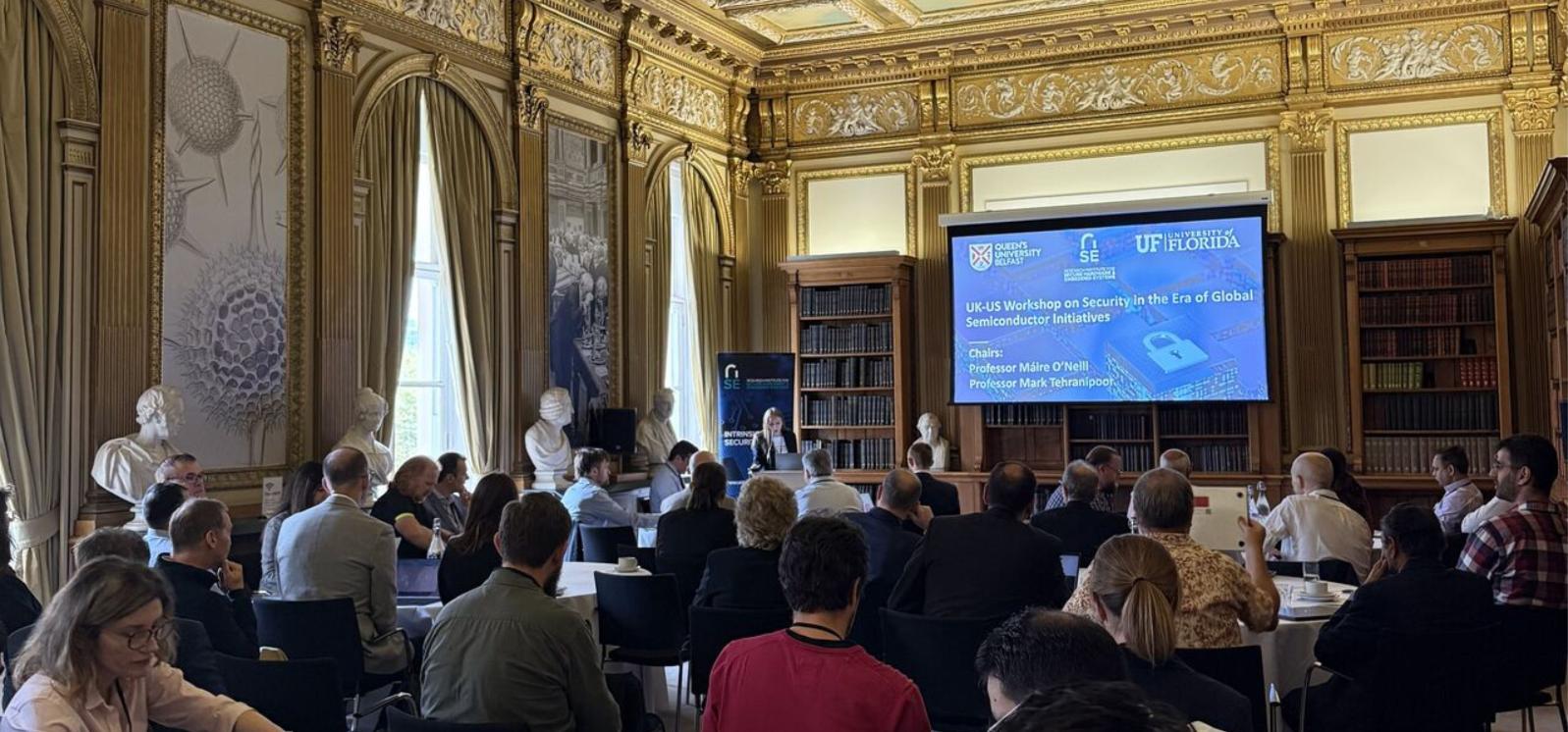UK RISE Semiconductor Security Symposium Strengthens UK–US Collaboration.
The UK RISE Semiconductor Security Symposium 2025 took place in The Royal Society in London 7–9 October, bringing together leading UK and US experts from industry, government, and academia to explore the latest developments in semiconductor security.

The event was supported by the Department for Science, Innovation and Technology (DSIT) and across the two days, delegates participated in keynote talks, emerging research sessions, and roundtable discussions focused on advancing secure and resilient semiconductor systems.
Discussions centred on four key themes:
-
Secure-by-Design Hardware Foundations
-
AI-Enabled Security Design & Verification
-
Supply Chain Integrity and Hardware Vulnerability Intelligence
-
Open-Source Security IP and Ecosystem Cohesion
These sessions encouraged open dialogue and knowledge exchange, helping to shape future research directions and policy recommendations for strengthening global semiconductor security. Attendees included representatives from leading UK and US universities and government as well as major cyber and hardware security organisations including Cisco, Marvell Technology, Ericsson, Qualcomm, Codasip, Intel, Thales, LowRISC and Arm.
The symposium was chaired by Professor Máire O’Neill, FREng (Director of the Research Institute in Secure Hardware & Embedded Systems (RISE) and the Centre for Secure Information Technologies (CSIT), Queen's University Belfast) and Professor Mark M. Tehranipoor (Intel Charles E. Young Pre-eminence Endowed Chair Professor in Cybersecurity, and Chair of the Department of Electrical & Computer Engineering, University of Florida, USA).
Speaking about the event, Professor Máire O’Neill said:
“The UK RISE Semiconductor Security Symposium provided an invaluable opportunity to bring together leading voices from across the UK and US to address the most critical challenges facing semiconductor security. Collaboration between academia, industry and government is essential to drive innovation and ensure the development of secure and trusted semiconductor systems for the future.”
